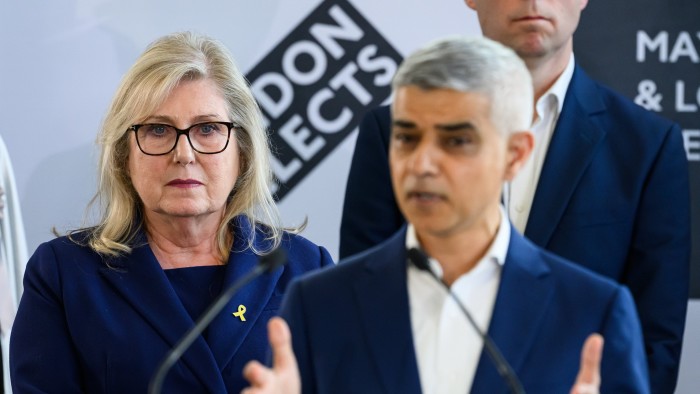What I got wrong in 2024: part two

This article is an on-site version of our Inside Politics newsletter. Subscribers can sign up here to get the newsletter delivered every weekday. If you’re not a subscriber, you can still receive the newsletter free for 30 days
Good morning. I made fewer mistakes this year than I do normally. I don’t think that’s because I am getting better at analysis and prediction, but because quite frankly 2024 was not a surprising year.
The Conservatives were elected in 2019 having made a set of specific promises, essentially none of which they kept. They then elected not one but two leaders who both had a platform of “those were stupid promises, we shouldn’t have made them and we won’t keep them”. The first of those two leaders, Liz Truss, did significant damage to the Tory government’s record for economic competence. The second, Rishi Sunak, did absolutely nothing to repair it. The result was obvious.
In addition, the Tory government did very little this year, other than drift, so there was not all that much to analyse, while there is still some time left to find out if what I have written about the new Labour government is right or wrong. (The form book suggests the answer is “mostly wrong”.)
As a result, there was not much this year to misjudge, and there were few occasions in which one could be particularly proud of getting things right. (Regardless, I will be doing a victory lap on Christmas Eve, when I will next appear in your inboxes. Guest writers of Inside Politics will also be keeping up the newsletter during some of the festive period.)
But I did manage to get some things very wrong indeed. I wrote about one yesterday, and here today is the other.
Inside Politics is edited by Georgina Quach. Read the previous edition of the newsletter here. Please send gossip, thoughts and feedback to [email protected]
Surpassing expectations
For much of the past two years, I have been warning that the London mayoral election would be closer than the polls suggested and that the Conservative candidate Susan Hall could win.
It’s fair to say that the London mayoral election was tighter than the polls indicated. If the polls had been right, Sadiq Khan would have won by 20 points and might well have got more than 50 per cent of the vote. As it happens, he “only” became the first politician to be re-elected as mayor of London for a third term, and did so by a bigger margin in terms of votes than any other candidate since Ken Livingstone in 2000.
Khan secured more than 1,088,225 votes, about 43.7 per cent of the total. Hall received 812,397 votes.
So on the narrow point of “the London mayoral election was closer than the polls suggested”, I was right. This turned out to be very important indeed in the general election.
My underlying reasoning for why the mayoral contest in the capital would be close was right: in the general election I thought that the Conservatives would do better than the opinion polls suggested, and they did. I thought that generic Labour candidates would underperform the polls, and they did. Reform performed worse. And discontent at Labour’s position on Israel’s war with Hamas was bigger and more electorally significant than the polls would have had us believe.
But the more important thing here is that I got the headline story wrong. Khan won by less than the polls had suggested but he was still re-elected in a landslide. Hall could not have won under essentially any circumstances.
I discussed some of what I got wrong earlier in the year, but I think the big lesson here is that, as I wrote yesterday in another context, candidates really matter. Khan did much better than a generic Labour candidate: he did not suffer the losses to the Greens or to pro-Gaza independents that we now know a Labour candidate “should” have experienced in that election.
And while this was a terrific year for the Liberal Democrats, this was also a year in which the success of the Lib Dems was partly determined by who the Conservative candidate was. Tory MP Caroline Nokes held her seat, despite it being a constituency that the Lib Dems had previously won. Rob Blackie, the Lib Dem candidate for mayor of London, achieved his party’s best result since 2008, in part because Hall was an unsuitable candidate for the London mayoralty.
Now, being a good candidate is not always enough to save you. Penny Mordaunt did much better than a generic Tory candidate but she still lost to Labour. Laura Farris, similarly, outperformed the Conservative brand but still lost to the Lib Dems. These are good reasons why the Tories should try and get them both back into parliament as quickly as possible.
I think “candidates matter” is a good explanation for why Labour got close to winning in 2017 but could not go all the way. This may well end up explaining why Labour is re-elected at the next general election, unless the Conservative party finds a better alternative than its current leader.
Now try this
I was very disorganised this year about booking a decent restaurant to take Georgina to as we celebrated another year in the newsletter, so we ended up at Côte yesterday, which I am sorry to say is, I think, a restaurant in decline. So in January we will have to turn up at Sweetings, the delightful fish restaurant, early or I shall be better organised about booking the wonderful Brutto, our two best local restaurants here at the FT.
Top stories today
-
Water mess | UK water regulator Ofwat will allow utilities in England and Wales to raise customer bills by an average of 36 per cent by 2030, a larger increase than it had previously indicated, but still short of the rises requested by troubled companies such as Thames Water.
-
UK borrowing costs climb | Worries over the stagnating UK economy and accelerating inflation are unnerving investors, pushing borrowing costs to their biggest premium over German debt yields since 1990.
-
Uh oh | The UK needs to spend 3.6 per cent of GDP on defence if it wants to modernise its military while protecting its nuclear deterrent and meeting Nato obligations, according to internal Ministry of Defence calculations.
-
‘Have a proper look at the full menu’ | Conservative shadow minister Andrew Griffith has urged Elon Musk to consider the Tories before donating to Reform UK, highlighting his party’s low-tax and anti-woke credentials.
-
What a relief | Toby Nangle breaks down HMRC’s latest non-structural cost estimates for tax reliefs in a handy data-driven Alphaville blog on the UK tax system.
Recommended newsletters for you
White House Watch — Your essential guide to what the 2024 election means for Washington and the world. Sign up here
FT Opinion — Insights and judgments from top commentators. Sign up here
#wrong #part







